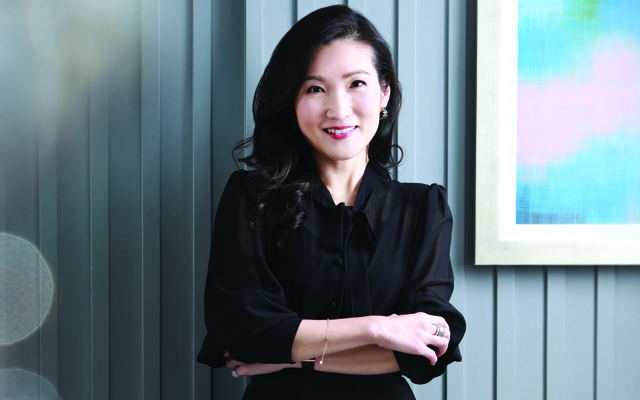Sherona Shng, regional vice president, operations Asia, and managing director at The Langham Hong Kong, believes that hiring and staff retention requires a different approach today

How are you planning to attract more hospitality staff?
I see this as a two-pronged approach – one is talent retention, and one is talent acquisition.
Let’s talk about talent retention first. Before my team goes out to recruit, I tell them that they need to think about how they can keep their good workers first.
There are so many people leaving the hospitality industry to join other industries, due to its volatility. When something hits the economy, hotels are one of the first few industries to suffer. Hence, young professionals – although they have studied tourism – choose to go into another industry that is more secure and pays better. These days, we need to think about what the younger generation wants in a job.
Is it more about changing the approach?
Absolutely, we have to put on a different thinking hat. We have to treat our colleagues the same way we treat our guests.
When there is a guest, our colleagues are asked to start building great memories for their guests by personalising their experience – whether the guest comes with family or as a business traveller – and ensure they leave with a great memory.
Similarly, it is very important to treat every colleague as if we were treating a guest; personalise their experience, take steps to understand what they want, and build great memories for them in the workplace. This way, we can retain as many talents as we can, because acquiring new talent is much more than what you spend on retaining talent!
Some of the colleagues I have spoken with also indicate remuneration is very important. Unfortunately, hotels are not necessarily the highest paying industry. The least we can do is benchmark salaries to stay slightly ahead of the competition. This way, we don’t lose out when people leave for a US$150 increment.
There will also be some individuals who want their ideas to be heard, to belong, and be recognised for their good work. It is our job as management to help our colleagues feel motivated and appreciated. That’s the culture I’m trying to build in my hotel, as well as trying to introduce to all the other hotels under my care.
(Editor’s note: Shng covers all hotels geographically in Asia outside China. Operationally, the hotels are The Langham, Hong Kong; Cordis, Hong Kong; and The Langham, Jakarta. It also covers hotels in development stages.)
What steps have you taken to retain talent?
Recently, I sent four of my team members from Hong Kong to help out in Melbourne for a month. When they came back, they had a sparkle in their eyes and were very motivated. It was as if they were on steroids (laughs). They shared with me that they had to work very hard, but they saw a different aspect of operations by being in a new city, learning new rules, and experiencing a new culture.
This initiative was to help these four staff develop a better sense of belonging to the brand. When they returned, they went around telling others about their great experience, and now I have people knocking on my door wanting to sign up for such programmes, regardless of location. I am very happy to hear that.
I also have more colleagues discussing opportunities with me, for example, asking if I need help with a hotel’s pre-opening. The underlying message I’m hearing is that: I am willing to stay with you, and although it may not be immediate, I want to sign up for such opportunities if there is a chance.
This is all part of retention and being able to motivate my colleagues, to show them there is development within the group.
I think my role is also an example to my colleagues. Like if you preserve, persist, and work hard, doors will open for you. I first started in communications and was with Langham for 14 years, before leaving for five years to join Four Seasons Hotels & Resorts, and eventually returning to Langham to do operations.
In relation to retention, one initiative I launched in my hotel is a mentorship programme. We identify some key staff that we want to grow and develop, and ensure they can see a future path with us.
Out of my six mentees, five are females, because I want to be that female leadership role. Regular time is set aside to coach and mentor my mentees on a one-on-one basis, where we talk about career development, problem-solving both at work and in life, and even relationship problems.
How does having more women in operational roles help with the manpower situation?
Operational roles in a hotel are not usually the first choice for females. Usually, women can be found in sales and marketing. I’m thinking of hiring more female chefs, pastry chefs, engineers, and mixologists. I’m trying to recruit a female bartender now actually! I already have a male bartender, so I’m trying to balance it out and have more diversity in the ranks.
That is why we have to be more innovative in how we recruit. It is no longer about posting an ad. Nowadays, it is via word of mouth, or someone that caught your eye in a restaurant or bar that is doing a great job and you get to know them, or through LinkedIn. We do a lot of LinkedIn searches.
Hospitality is constantly reinventing itself. The pandemic has also taught us that people skills and the ability to engage with guests at every stage of the journey remain the most important element of what we do. For the right people with the right mindset, a career in hospitality literally opens a world of opportunity as the industry continues to grow, and exceptional talent will always rise to the top.





















